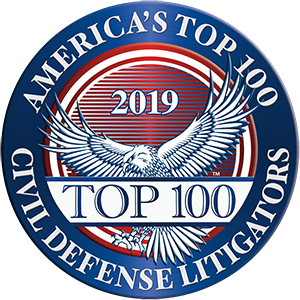San Francisco is famous for many things, from freshly baked sourdough bread bowls filled with clam chowder, to its iconic streetcars struggling up and down the city’s many steep hills. However before you decide to open that business that will make you millions, you may want to be aware of a few unique laws that will affect your wallet. There are a number of unique ordinances that are all designed with the employee in mind. Some view these ordinances as burdensome, but in the long run they can prove to be beneficial since a happy employee means a happy business. Below are just a few examples of San Francisco’s ordinances.
PAID SICK LEAVE ORDINANCE (PSLO): San Francisco Administrative Code, Chapter 12W
San Francisco requires employers to provide paid sick leave to all employees who work within San Francisco. All employees who work in San Francisco, including part-time and temporary, accrue paid sick leave for those hours worked in San Francisco regardless of where the employer is located or the number of hours worked. This means, that if you were to send one of your employees to attend a meeting in San Francisco, that employee would be able to accrue paid sick leave for the time that employee spent in San Francisco. However, PSLO only applies if you were to send the employee there on a regular basis. If the employee goes to a conference or just for a quick business trip, they would not be eligible to accrue any paid sick leave.
Under PSLO, employees can begin to accrue sick leave after ninety (90) calendar days of employment after the first day worked. These 90 days will accrue regardless of whether or not the employees actually worked, for example weekends and holidays will still count toward the 90 days. Once 90 days of employment are completed, the employee begins to accrue paid sick leave at the rate of one hour for every thirty hours worked, and will only accrue in hour unit increments and not in fractions of an hour. Once the leave has been accrued, it must be made available for use as soon as it has been accrued, meaning the employer cannot wait to make the accrued leave available at the end of the pay period or some other future point in time. Unlike Paid Time Off, sick leave cannot be paid out upon the employee’s separation from the company.
FAMILY FRIENDLY WORKPLACE ORDINANCE (FFWO): San Francisco Administrative Code, Chapter 12Z
With the increasing costs of caregiving, many employees are working nontraditional schedules in order to provide care for family members in need. As such, San Francisco has enacted FFWO in order to accommodate the workforce’s needs. FFWO grants certain employees the right to request a flexible or predictable work arrangement in order to provide caregiving services for immediate family members. However, FFWO only applies to those employers that employ twenty or more people. The FFWO applies to any employee, including part-time, that are employed within San Francisco, have been employed for six months, and regularly work at least eight hours per week.
Any employee that meets the criteria can then request a flexible work schedule in order to assist with caregiving services for any employee’s children, parents aged 65 or older, or a family member with a serious health condition. A serious health condition is any condition that requires either inpatient care in a hospital or continuing treatment by a physician.
The employee can request a reduction of hours, a different shift, a different location to work at, new or closer work assignments, and a more predictable work schedule. The request must be formal and in writing, however the initial request can be made orally, and at that time the employer must inform the employee that the request will have to be written. The written request must include the requested arrangement, effective date, duration, and an explanation of how the request relates to caregiving.
A request can be denied based on a bona fide business reason, such as prohibitive cost of hiring a temp, negative effect of ability to meet customer demands, inability to distribute work to other employees, and not enough work to be performed by the employee during the proposed time to work. Additionally, any arrangement made by the employer and employee are revocable with 14 day notice.
FAIR CHANCE ORDINANCE (FCO): San Francisco Police Code, Article 49
The Fair Chance Ordinance (FCO) was designed to create a set of strict rules for employers to follow regarding an applicant’s criminal history. The FCO applies to employers with 20 or more employees that are located within San Francisco.
Employers are prohibited from both considering and inquiring any of the following:
– Arrest not leading to a conviction, other than an unresolved arrest
– Unresolved arrest is an arrest in a pending criminal action
– Participation in a diversion program
– Anger management, drug treatment, rehab, etc.
– Conviction that had been judicially dismissed, expunged, or voided
– Conviction or other determination in the juvenile justice system
– Conviction that is more than seven years old from the date of sentencing
– Criminal offenses other than felonies or misdemeanors
If an employer was going to run a background check against an applicant, the information both sought and used must be directly related to the job. Only the convictions and unresolved arrests that directly relate to the job may be considered. For example, you have a posting for a delivery driver and you find that one applicant has been convicted multiple times for DUI, you can use that information to make a determination on whether or not that person is hired. Now if you were to find that this person was convicted of assault while they were a juvenile, you cannot use that information to make a determination, since the conviction was when the applicant was a minor.
Employers are no longer permitted to include any questions about criminal history at the beginning of the application process, including on a job application form. Employers must follow these specific procedures when making inquiries:
– Inquiry must occur after first live interview or conditional job offer
– Pre-inquiry notice must be given to applicant or employee
– Conduct individualized assessment
– Provide notice of prospective adverse action
– Allow applicant/employee seven days to produce evidence of inaccuracy or mitigation
– Provide notice of final adverse action
HEIGHT AND WEIGHT DISCRIMINATION: San Francisco Administrative Code Chapter 12A
San Francisco also prohibits employers from discriminating against employees based upon their weight and/or height. However, if the position requires a bona fide field qualification, such as a window washer must not exceed a certain weight limit due to limitations of the equipment, an employer can use a weight or height standard. Employers must also ensure that all facilities, such as bathrooms or breakrooms, must be accessible to all employees.
SAN FRANCISCO DRUG TESTING ORDINANCE (SFDTO): San Francisco Police Code, Article 33A, § 3300A.5
San Francisco has restricted drug testing of employees since 1985, however applicants can be drug tested at any time. In order to test an employee the following restrictions must be metbefore the test occurs:
– Employer has reasonable grounds that the employee is impaired on the job
– Impairment would create a clear and present danger
– Employer provides employee the test
– Employee is given the chance to rebut or explain results
As such, random drug testing is prohibited so a company cannot require company-wide drug testing. However, if the work involves toxic or unhealthy conditions, an employer can conduct routine medical screening, as long as the employee provides consent. Additionally, employers can ban the use and possession of intoxicating substances in the workplace, and can take appropriate actions if it is violated.
The city by the bay presents incredible opportunities for employers and employees alike. Both are protected by the unique ordinances found within the city limits. The ordinances are completely different and foreign to most employers, but with a better understanding, employers and their business can thrive in San Francisco for many years to come.
For questions, please contact Shannon Jenkins at sjenkins@tldlaw.com






